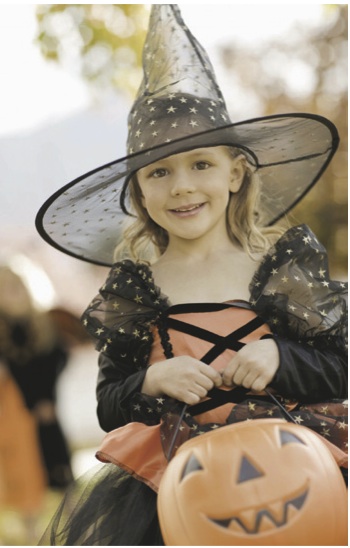October 31st is nearly here, and soon the streets will be filled with costumed revelers eager to get their share of the free-flowing candy and other prizes. Year after year, trick-or-treaters don their costumes and parade from home to home. But have you ever wondered where this and other traditions began?
Trick-or-treating and wearing costumes seem like odd traditions to those unaccustomed to Halloween. Halloween customs are actually a blend of Celtic, Catholic, Pagan, and ancient Roman traditions. It is thought that Halloween celebrations date back to roughly 800 to 600 BC, when they originally were observances of the harvest season and nature before the arrival of winter, which marked the barren state of the landscape. The Celtic festival of Samhain was a major influence on modern day Halloween.
On October 31, Celts also believed the door to the underworld was opened and could let in deceased spirits. Feasts were held and place-settings were left for deceased relatives, as they were believed to return home for a visit. In addition to friendly spirits, mean spirts also could cross over. Bonfires were lit to ward off spirits, and extra candles would be used in homes and churches to keep evil away.
Even the custom of wearing costumes has its roots in keeping evil spirits at bay. Costumes and masks were worn to confuse bad spirits and frighten them so that they could not bestow misfortune on the more fortunate. People also wore masks and ventured out after dark so that envious ghosts who were cold and outside could not recognize residents of warm and inviting homes.
The trick-or-treating custom may have blended origins. Druids believed the dead would play tricks on mankind during Samhain, causing destruction and panic. To appease the spirits, people would give the dead food and other treats.
Another custom, called “souling,” can be linked to Halloween as well. Early Christians would walk from village to village asking for “soul cakes,” which were square pieces of bread with currants. The more cakes received, the more prayers the faithful would promise to say on behalf of the dead relatives of the cake donors to expedite a soul’s passage to heaven.
Irish trick-or-treating customs may be traced back to collecting supplies door-to-door for the festival of St. Columbkille.





